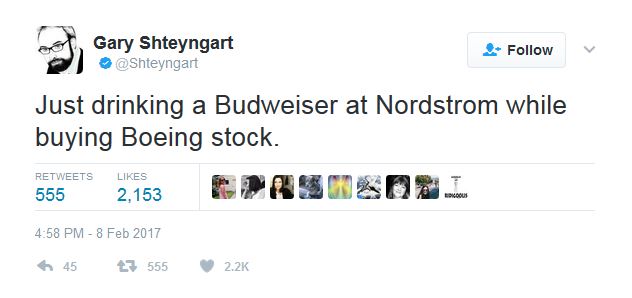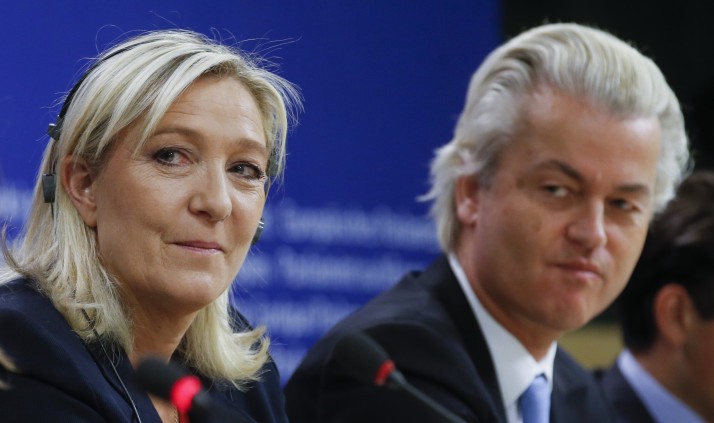Join us to discuss Signal and the week's news live on Facebook at 11:30 am ET today (February 17). See you at
facebook.com/eurasiagroup. If you miss it, you'll be able to watch the recap video there afterward.
This week, European political drama ramps up as elections near in France and the Netherlands, and other nations join the chorus of nation first. Here we go!
The Noise This Week
Now that Donald Trump has broken his streak of controversial world leader calls by
affirming the One China policy to Xi Jinping last night, it's time to let Europe have a moment in the political spotlight. France has the lead role. Keeping track of all the possible outcomes of this spring's presidential election is no easy feat. Francois Fillon, the former prime minister who has led the race in measures like
fundraising, chose to
stay in the race this week despite a corruption scandal involving his family. (Unlike certain
American presidents, Fillon was willing to
admit he may have misstepped.) The one stable expectation in the race is that Marine Le Pen will be the person to beat in the second round of the vote. At this point, even losing would be a form of victory for Le Pen, given how she has
changed the perceptions of her party from a one-time pariah to something
much closer to the political mainstream.
But before the outcome in France is decided in May, the Netherlands will hold parliamentary elections. Prime Minister Mark Rutte is in a
pitched battle with Geert Wilders, who has a claim to the title of the most aggressive anti-establishment candidate on the continent. But as even Wilders
acknowledges, coalition politics means he probably won't become prime minister — other parties are refusing to work with him. Nonetheless, the nationalist rhetoric and the platform he's built are here to stay. After the election, his party will have seats in parliament, and he will have a loud voice in the media. His social media strategy can only be described as Trumpian: the banner photo on his
Twitter page shows the words “Stop Islam,” in English. And love it or hate it, leaders who make noise on Twitter drive the news cycle in 2017.

Beyond the campaign drama, what's driving attention to the election cycle is the range of serious European-level crises that could benefit from serious political leadership. Most acute is
Greece, where a
divided group of creditors are
facing off once more against Syriza's politically weak leadership. European leaders would like to tie negotiations off before the Dutch election, but Greek dramas have a way of lasting longer than you want them to. The more chronic problem is in the
Balkans. Even as the British lead the charge out the EU, Bosnia is still
on its way to joining the union. The EU's slow and steady pressure on its neighbors to reform is probably its greatest foreign policy achievement. But that stabilizer role could be jeopardized if a crisis hits while the big EU states are distracted by internal fights. Serious people are starting to
get concerned about what might happen if nationalist leaders like Milorad Dodik of Repulika Srpska decide to pick a new fight about borders. That's not to mention the role played by Russia, which may have tried to promote a
coup in Montenegro, or the question of whether NATO is truly committed to the region in the long-run with Trump in office.
Combine all that with
haranguing phone calls from the U.S. president, and you can start to sympathize with Francois Hollande's decision to exit the scene. Wouldn't you rather be
kitesurfing, too?
Self-Promotion Interlude: Watch Japan expert
Scott Seaman discuss Japanese Prime Minister Shinzo Abe's visit to the U.S.
Ranked: After “America First,” Other Nations That Want to Be First, Too
Whatever world leaders think about Trump's pledge to put “America First,” there's one thing they can't deny: It's a political winner. No surprise then that others will adopt and adapt this idea. This form of imitation may not qualify as flattery, but all politicians understand that nothing succeeds like success. Here are a few of the movements to put “[YOUR NATION HERE] First.”
5. Mexico First. Mexico's leaders have been unwilling to say in public what they have said in private. In January, CNN anonymously quoted a senior Mexican diplomat: “We say Mexico first.” Shortly after, President Enrique Pena Nieto cancelled a planned meeting with Trump,
launched a new “Made in Mexico” economic campaign, and
discussed a closer trade relationship with Brazil and Argentina. A social media
campaign has sprung up around the slogan #MexicoPrimero, but the trouble with a true Mexico first campaign, as Pena Nieto knows well, is that Mexico is at America's mercy economically. For Trump, Mexico will always be second. Or maybe ninth.
4. Hungary First. Prime Minister Viktor Orban has been an early and enthusiastic supporter of Trump, who sees a U.S. turn inward as a kind of liberation. In a speech after Trump's inauguration, Orban
said, “We have received permission from, if you like, the highest position in the world so we can now also put ourselves in first place.” Putting Hungary first may include joining Trump in shifting the West's relationship with Russia. Orban
received a high-profile visit from Vladimir Putin last week.
3. Australia First. Canberra is seeing a race to the podium in the wake of Trump's election, with both government and opposition promising to put Australia first, while a defector from the government has
promised to bring Trump-style anti-establishment politics to the country. Opposition leader Bill Shorten has
defined “Australia First” in terms of immigration, proposing giving greater priority to Australian labor over migrating workers. Treasurer Scott Morrison
sees it as a trade strategy that would try to keep multilateral free deals alive after Trump withdrew from the 12-member Trans-Pacific Partnership agreement. This week, the Australian government
declared it would seek a “TPP minus one” deal with the other members. The problem for Australia, though, is that without the massive U.S. economy in the deal, twelve minus one might equal zero.
2. France First. Marine Le Pen's campaign for the French presidency is the closest ideological analogue to Trump's positions. In a speech on Sunday formally launching her campaign, she
pledged to “put France first.” Her party, the National Front, is “about the local, not the global,”
she said. Her opposition to “financial globalization and Islamist globalization” won her admiring an admiring headline from the conservative publication
Breitbart. The question is whether France will put Le Pen first. Polls
show her likely to lose the second round of elections in May.
1.India First. Modi has made “India First” a mantra since his 2013–2014 campaign for prime minister, long before Trump started using his version. Modi initially
defined “India first” as a nation-centered secularism, a position intended to defend him from criticism that he was complicit in sectarian rioting in his home state of Gujarat. “Country is above all religions and ideologies,” he
said at the time. But as the Trump era has unfolded, it has taken on a more global tinge: “India first… is about protecting India's strategic interest,” Modi
said in August. So far, at least, that strategic interest hasn't involved conflict with Washington. In 2017, maybe India and America can both be first.
Your Weekly Bremmer:
Watch Ian live from
Central Park.
Hard Numbers
441 South African soldiers were
called in to maintain order in Parliament during President Jacob Zuma's annual state of the nation address this week. Nonetheless, a brawl
erupted in Parliament.
38 drone strikes were conducted by the U.S. in Yemen last year, up from 22 in 2015. The question now: will that number go up again after Yemen withdrew permission for the U.S. to conduct ground operations?
$1.3 million is the going rate for a seat in
Somalia's parliament, according to the country's auditor general. Lawmakers
elected Mohamed Abdullahi Farmajo, a former prime minister and U.S. dual-citizen, as the country's next president this week.
2 members of France's 577-seat National Assembly
are affiliated with the
current frontrunners in the country's presidential race. That will make governing difficult no matter who wins.
202,000 references were made to Donald Trump in the Russian media in the month of January, putting him squarely ahead of Vladimir Putin, who had 148,000 mentions. America first.
10.3 percent of the UN's peacekeeping budget is paid for by
China, putting it ahead of Japan, Germany, France and the U.K., and behind only the U.S.
Bonus Limerick
Longtime readers will know we are big fans of
Karthik Sankaran's macroeconomic limericks. Now the
Financial Times has helpfully collected them in one entertaining post. Here's one of our favorites, but you are strongly encouraged to go read the whole set.
Marine le Pen talks of the chance
Of a sovereign currency for France.
But if they're not Germany's Tonto
Markets will dump OATs pronto
Thus tightening the monetary stance.
– Karthik Sankaran
Words of Wisdom
“The spirit of the millennial is better suited to the complex challenges that central bankers face in a risky and uncertain world.”
–
Bank of England Governor Mark Carney, explaining why central bankers need to embrace cognitive diversity. Congratulations, millennials. Now you've ruined central banking, too.
Signal is written by Matt Peterson (@mattbpete) with editorial support from Gabe Lipton (@gflipton). Don't like what you read? Feel free to yell at us on Twitter or just reply to this email.


